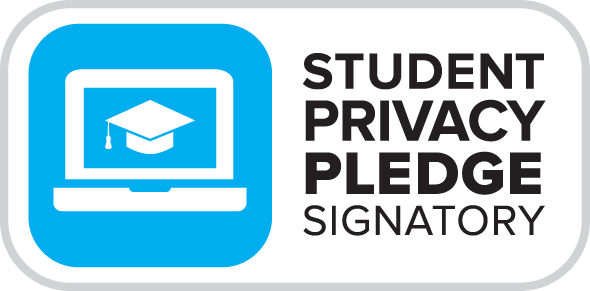OTHER SAMPLE STUDIES
1. STUDIES SHOWING HIGHER GRADES
Zins, J. E., Weissberg, R. P., Wang, M. C., & Walberg, H. J. (Eds.). Building academic success on social and emotional learning: What does the research say? New York, NY: Teachers College Press.
Payton, J. W., Weissberg, R. P., Durlak, J.A., Dymnicki, A.B., Taylor, R.D., Schellinger, K.B., & Pachan, M. The positive impact of social and emotional learning for kindergarten to eighth-grade students: Findings from three scientific reviews. Chicago, IL: Collaborative for Academic, Social, and Emotional Learning.
Qualter, P., Whiteley, H.E., Hutchinson, J.M. and Pope, D.J. (2007) Supporting the Development of Emotional Intelligence Competencies to Ease the Transition from Primary to High School. Educa- tional Psychology in Practice, Vol. 23 (1). pp. 79–95.
2. STUDIES SHOWING POSITIVE SOCIAL AND ACADEMIC OUTCOMES
Mayer, J. D., Roberts, R. D. & Barsade, S. G (2008). Human Abilities: Emotional Intelligence. Annual Review of Psychology, 59: 507-36.
Denham SA, Blair KA, DeMulder E, Levitas J, Sawyer K, Auerbach-Major S. 2003. Preschool emotional competence: pathway to social competence. Child Dev. 74:238–56
Qualter, P., Gardner, K.J., Whitely, H.E. Emotional Intelligence: Review of Research and Educational Implications. Pastoral Care.
Cherniss, C., Extein, M., Goleman, D., & Weissberg, R.P. Emotional Intelligence: What Does the Research Really Indicate? Educational Psychologist. 41(4), 239-245
3. STUDIES SHOWING STRONGER ABILITY TO INTERACT AND FORM RELATIONSHIPS. LEADING TO OUTCOMES LIKE LESS BULLYING, VICTIMIZATION, COMPROMISED PEER RELATIONS
Mavroveli, S. & Sánchez-Ruiz, M.J. (2011). Trait emotional intelligence influences on academic achievement and school behavior. British Journal of Educational Psychology. 81, 112–134.
MacCann, C., Fogarty, G.J., Zeidner, M., & Roberts, R.D. (2011). Coping mediates the relationship between emotional intelligence (EI) and academic achievement. Contemporary Educational Psychology, 36: 60–70.
Nelis, D., Quoidbach, J., Mikolajczak, M., Hansenne, M., (2009). Increasing emotional intelligence: (How) is it possible? Personality and Individual Differences 47: 36–41.
4. SHOWING CHILDREN LESS LIKELY TO ENGAGE IN HIGH RISK BEHAVIORS
Hawkins, J. D., Graham, J. W., Maguin, E., Abbott, R., Hill, K. G., & Catalano, R. F. Exploring the effects of age of alcohol use initiation and psychosocial risk factors on subsequent alcohol misuse. Journal of Studies on Alcohol 58(3), 280–290.
OTHER STUDIES/RESOURCES:
Denham, S. A., & Weissberg, R. P. (2004). Social-emotional learning in early childhood: What we know and where to go from here. In E. Chesebrough, P. King, T. P. Gullotta, & M. Bloom (Eds.), A blueprint for the promotion of prosocial behavior in early childhood (pp. 13-50). New York: Kluwer Academic/ Plenum Publishers.
Domitrovich, C. E., Moore, J. E., Thompson, R. A, & the CASEL Preschool to Elementary School Social and Emotional Learning Assessment Workgroup. (2012). Interventions that promote social-emotional learning in young children. In R. C. Pianta, W. S. Barnett, L. M. Justice, & S. M. Sheridan (Eds.),Handbook of early childhood education (pp. 393-415). New York: Guilford Press.
Durlak, J. A., & Weissberg, R. P. (2011). Promoting social and emotional development is an essential part of students’ education. Human Development , 54, 1-3.
Durlak, J. A., Weissberg, R. P., Dymnicki, A. B., Taylor, R. D., & Schellinger, K. (2011). The impact of enhancing students' social and emotional learning: A meta-analysis of school-based universal interventions. Child Development , 82, 405-432.
Elias, M. J., Kranzler, A., Parker, S. J., Kash, V. M., & Weissberg, R. P. (2014). The complementary perspectives of social and emotional learning, moral education, and character education. In L. Nucci, T. Krettenauer, & D. Narvaez (Eds.), Handbook of moral and character education, (2nd ed.) (pp.272-289), New York: Taylor & Francis/Routledge.
Greenberg, M. T., Weissberg, R. P., O 'Brien, M. U., Zins, J. E., Fredericks, L., Resnik, H., & Elias, M. J. (2003). Enhancing school-based prevention and youth development through coordinated social, emotional, and academic learning. American Psychologist, 58, 466-474.
Kendziora, K., Weissberg, R. P., Ji, P., & Dusenbury, L. A. (2011). Strategies for social and Emotional learning: Preschool and elementary-grade student learning standards and assessment. Newton, MA: National Center for Mental Health Promotion and Youth Violence Prevention, Education Development Center, Inc.
Mart, A., Dusenbury, L., & Weissberg, R. P. (2011). Social, emotional, and academic learning: Complementary goals for school-family partnerships. In S. Redding, M. Murphy, & P. Sheley (Eds.),Handbook of family and community engagement (pp. 37-43). Academic Development Institute, Lincoln, IL.
Payton, J. W., Graczyk, P. A., Wardlaw, D. M., Bloodworth, M., Tompsett, C. J., & Weissberg, R. P. (2000). Social and emotional learning: A framework for promoting mental health and reducing risk behavior in children and youth. Journal of School Health, 70, 179-185.
Schonert-Reichl, K. A., & Weissberg, R. P. (2014). Social and emotional learning: Children. In Gullotta, T. P., & Bloom, M. (Eds.). Encyclopedia of Primary Prevention and Health Promotion Part II. (2nd ed.), New York: Springer.
Weissberg, R. P. & Cascarino, J. (2013, October). Academic learning + social-emotional learning = national priority. Phi Delta Kappan, 95(2), 8-13.
Weissberg, R. P., Kumpfer, K., Seligman, M. E. P. (Eds.). (2003). Prevention for children and youth that works: An introduction. American Psychologist, 58, 425-432.
Zins, J. E., Bloodworth, M. R., Weissberg, R. P., & Walberg, H. J. (2004). The scientific base linking emotional learning to student success and academic outcomes. In J. E. Zins, R. P. Weissberg, M. C. Wang, & H. J. Walberg (Eds., Building academic success on social and emotional learning: What does the research say? (pp. 3-22). New York, NY: Teachers College Press.





